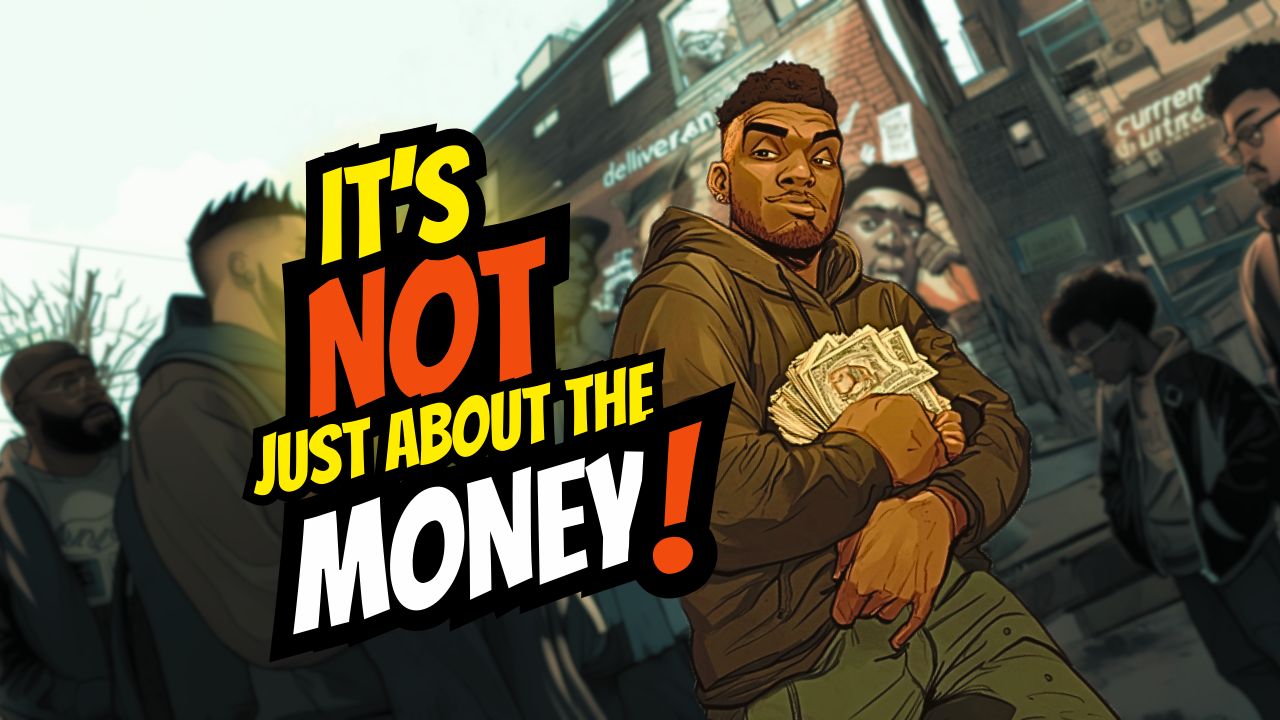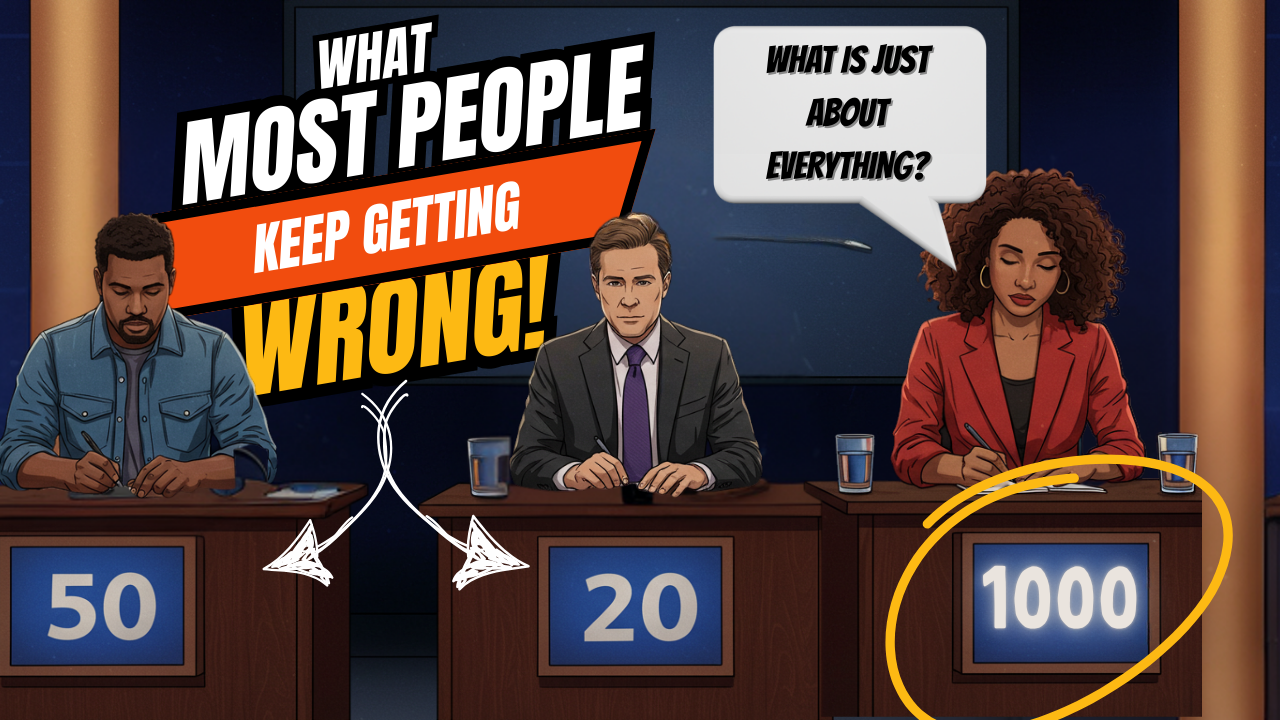How to Replace a Gang’s Ecosystem with Hope: A Conversation with Robert David
Some people think you can just yank someone out of gang life and call it intervention. CVI expert Robert David says in his 30+ years of experience he's learned that’s not how it works.
In this episode The InCredible Messenger, Robert breaks down how gangs function as ecosystems – and why real change means creating an alternative ecosystem that meets the same needs.
We talk about culture, belonging, and why it’s not just about the money. Robert takes us through how he’s using jobs, community connections, and trust-building to transition young people from survival mode to success mode.
If you’re serious about understanding what real intervention looks like, this conversation will challenge everything you thought you knew about youth violence prevention.
Chapters
00:00 – Introduction to Robert David
02:21 – Robert’s Personal Journey and Motivation
07:08 – The Role of Community in Violence Prevention
10:19 – Recruiting Youth to Change the Narrative
12:16 – Understanding Gang Culture and Community Engagement
17:41 – Creating Ecosystems for Change
21:06 – From Probation Officer to Community Advocate
25:09 – Integrating Behavioral Science in Community Work
27:05 – The Multifaceted Role of Robert David
32:31 – Personal and Professional Evolution in the Field
36:04 – The Importance of Roles and Principles in Community Work
38:08 – Understanding Motivations: Money, Ego, and Turf
40:44 – Entering the Field: Advice for Newcomers
42:57 – The Importance of Respect in Community Work
45:11 – Beyond Mentorship: Being a Conduit for Resources
51:11 – Building Community Ecosystems: Starting at the Grassroots 01:01:08 – System-Level Solutions: Connecting Resources Effectively
01:08:30 – The Heart of the Work: Passion and Authenticity
Takeaways:
Creating change means creating an entire ecosystem, not just a program.
Building trust and authentic relationships is essential for effective intervention.
Gangs provide structure, identity, and belonging – interventions must do the same.
It’s not just about jobs – it’s about creating sustainable pathways to opportunity. * The right mentors don’t just guide – they connect youth with real resources.
Connect with Robert David:
Website: [https://www.robertdavidconsulting.com/](https://www.robertdavidconsulting.com/) Email: [Robertdavidlifecoach@gmail.com](mailto:Robertdavidlifecoach@gmail.com) LinkedIn: [https://www.linkedin.com/in/robert-david-sr-ms-6ab58b45/](https://www.linkedin.com/in/robert-david-sr-ms-6ab58b45/) Books: [https://amazon.com/author/robertdavidlifecoach](https://amazon.com/author/robertdavidlifecoach)
What A Day In The Life of A CVI Worker REALLY Looks Like: A SECOND conversation with Preston Adams
This episode right here is for the ones who do the work or are thinking about stepping into it.
Last year, I sat down with my bro Preston Adams—co-founder of Fully Liberated Youth (now the City of Denver's Youth Violence Prevention program manager) to have a real conversation about what a day in the life of a CVI worker actually looks like. I want you to know the truth - not the version in a brochure. The version where you’re checking on a kid at 10PM, getting ghosted in the morning, dodging drama at a local restaurant, and still pulling up to court, school, a sentencing hearing, or a funeral. We talked about everything they don’t put in the job description: The emotional weight of the work. The trauma that comes with close to those we serve. The gas, the ghosting, the grind. And what it really takes to run an organization—not just serve in one. We also get into how to hold your own in rooms full of professionals who have titles, degrees, and power—but don’t always understand the value of lived experience. If you’re already in this field, just starting, or thinking about building something—this conversation might save you some mistakes. It’s not just insight—it’s strategy. Timestamp 0:00 - Exploring Youth Violence Prevention and Building Community Organizations 4:30 - Challenges and Rewards of Supporting At-Risk Youth in Denver 9:19 - Navigating Gang Territories and Celebrating Youth Achievements 11:38 - Advocating for Young People in Professional Settings 18:23 - Addressing Trauma for Effective Substance Misuse Treatment 20:32 - Building Relationships Through Humility and Understanding Professional Jargon 23:46 - Collaborative Efforts to Support and Liberate Young People 27:21 - The Power of Lived Experience in Advocacy 32:45 - Adventures and Challenges of Life on the Road 35:54 - Building a Nonprofit: Challenges and Strategies for Success 41:16 - Understanding Business Dynamics in Nonprofit Organizations 45:04 - Building a Movement: Balancing Compassion and Business Operations 52:06 - Navigating Nonprofit Challenges and Finding Your Passion 57:35 - Embodying Values and Expanding Impact Through Conversations Resources by Preston: Tattoos on the Heart by Father Gregory Boyle: https://amzn.to/3GjN45T
From the Streets to the Solution: Real Talk on CVI with Marcus McAllister
If you're serious about understanding Community Violence Intervention (CVI), this episode with Marcus McAllister is essential. Marcus doesn't just talk CVI; he's lived it. After nearly a decade of incarceration, he transformed his life and is now a highly sought-after expert in violence intervention.
In this candid conversation, Marcus shares deeply personal stories about his journey and highlights empathy as the most critical skill in CVI work. He clarifies often misunderstood concepts, like the difference between violence prevention, intervention, and interruption.
Marcus emphasizes that successful CVI isn't just about immediate solutions but lasting community transformation, starting with professional growth and structured training for outreach teams.
Usually, you'd have to attend a conference or pay for Marcus's insights—but he's offering game-changing wisdom here for free. Don't miss this.
What Most Cities Get Completely Wrong About Violence Prevention - And How to Fix It: A Conversation with Dr. Monique Williams
What do most cities get wrong about violence prevention/intervention?
More than you might realize.
What does it really mean to lead with purpose — not just passion — in the community violence intervention space?
In this week's episode of The InCredible Messenger Podcast, I sat down with Dr. Monique Johnson , Executive Director of Cure Violence Global and she masterfully answered those questions and many more.
We covered a lot:
The difference between direct, structural, and cultural violence — and how they all show up in our work
Why treating violence as a public health issue is more than just a slogan — it’s a proven strategy
The complexity (and necessity) of truly engaging youth who are directly impacted by violence
What leadership should look like in this space — and why it matters who’s in the role
This episode isn’t just for people “in the field.” It’s for anyone who believes that equity, healing, and safety aren’t mutually exclusive — and wants to understand how to move from rhetoric to results.
You'll see it was a conversation that left me feeling seen, challenged, and deeply affirmed.
Listen, share, and let’s keep this conversation going.





